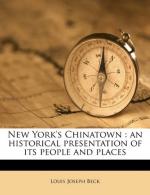|
This section contains 700 words (approx. 3 pages at 300 words per page) |

|
Social Roles. Ming-era (1368-1644) intellectuals had to deal with the problems of living a Confucian lifestyle in a world that remained obstinately un-Confucian. In spite of official state support for Confucianism, the Ming government and society were far from the Confucian ideal. In addition, Ming intellectuals had to redefine the role of educated scholar-officials in society, because the development of trade created new wealth, a new source of power, and in effect, a new value system. Simultaneously, the increase of literacy weakened the monopoly on classical ideas and culture, as well as the position of classically educated persons. Finally, in a post-classical era, the only way a scholar could play a personal role was by specialization, which indicated a departure from the traditional goal of broader knowledge. To identify their personal and social roles, intellectuals were forced to question their own nature&mdash...
|
This section contains 700 words (approx. 3 pages at 300 words per page) |

|




